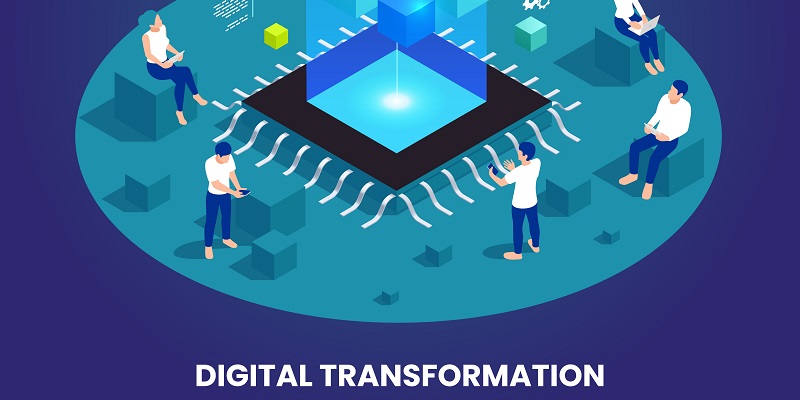Digital transformation has become a buzzword across industries, highlighting the importance of adopting new technologies and rethinking traditional business practices. This transformation is not just about implementing new technology. It involves a shift in organizational culture, customer experience, and overall business strategy. A successful digital transformation journey requires a well-defined roadmap that outlines a clear vision, goals, and objectives.
Importance of Having a Well-Defined Roadmap
Before embarking on any digital transformation journey, it is essential to have a clear roadmap in place. A well-defined roadmap sets the foundation for prioritizing initiatives, allocating resources, and measuring success. It ensures that all stakeholders — including employees, partners, and customers — are aligned with the goals and objectives of the transformation journey.
Outlining a Clear Vision, Goals, and Objectives
One of the essential components of a digital transformation roadmap is having a clear vision, goals, and objectives. The vision should be aspirational and convey a sense of purpose. The goals and objectives should align with the business strategy and be specific, measurable, achievable, relevant, and time-bound (SMART). This approach helps to set clear expectations and ensure that all stakeholders are on the same page.
Aligning the vision and goals with the business strategy is paramount for digital transformation to succeed. It ensures that the transformative efforts complement the overall strategy, leading to the long-term success of the organization. When setting objectives and goals, it is critical to take into account the organization’s capabilities, market trends, and customer expectations.
Conducting a Current State Assessment
Before embarking on a digital transformation journey, it is essential to conduct a current state assessment. This process involves analyzing the existing business processes, identifying pain points and inefficiencies, and determining areas for improvement. This assessment helps to identify the gaps between the current state and the desired state, which informs the development of a roadmap.
Collaboration and buy-in from all stakeholders are essential for successful digital transformation. Employees, partners, and customers should all be involved in the transformation journey to ensure that all perspectives are considered, and everyone feels empowered to contribute. It is necessary to create a culture that encourages innovation and experimentation.
Agile methodologies can help companies move faster and more efficiently in their digital transformation journey. This approach involves breaking down initiatives into smaller, more manageable components, allowing for faster feedback iterations and course corrections. Agile methodologies also empower teams to make decisions and take ownership of their work, driving innovation and creativity.
A customer-centric approach should be at the core of any digital transformation initiative. Companies should focus on enhancing the overall customer experience, delivering personalized interactions, and providing seamless experiences across channels. This approach requires a deep understanding of customer needs and preferences, which can be achieved with the help of customer data.
The importance of data in digital transformation cannot be overstated. Data is a critical component that enables companies to gain insights into customer behavior, preferences, and purchase patterns, which inform the development of personalized experiences. With the help of data analytics, companies can identify trends, predict customer needs, and optimize business processes for better outcomes.
Case Study: Coca-Cola’s Digital Transformation
Coca-Cola is an excellent example of a company that successfully underwent a digital transformation journey. The company leveraged data analytics to gain insights into customer behavior, preferences, and purchasing patterns. This data helped the company develop personalized marketing campaigns, optimize inventory management, and enhance the overall customer experience. Coca-Cola also experimented with new technologies, such as augmented reality and chatbots, to further enhance the customer experience.
Continuous evaluation, iteration, and adaptation are necessary components of a successful digital transformation roadmap. Creating such a roadmap is not a one-time exercise; rather, it requires ongoing assessment and adjustment. Companies should regularly monitor progress, measure the success of initiatives, and make changes as needed. By adopting this approach, the roadmap can remain relevant and aligned with changing market trends and evolving customer needs.
Digital transformation is a journey that requires a well-defined roadmap, collaboration and a customer-centric approach. Companies should align their vision and goals with the overall business strategy, leverage data analytics and focus on enhancing the overall customer experience. With the right approach and mindset, digital transformation can lead to improved business performance and long-term success.

